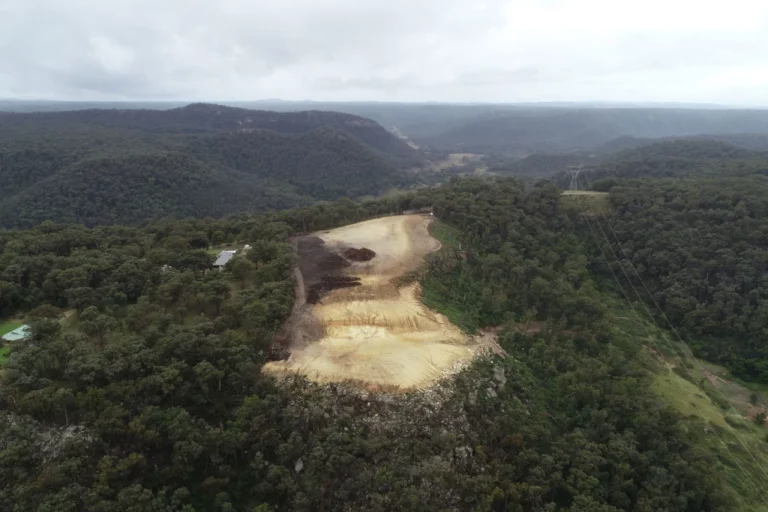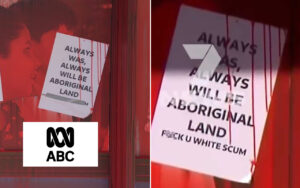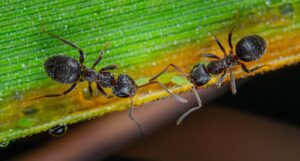A Lebanese mother who ignored two orders to stop destroying five hectares of koala habitat on her New South Wales bush property and then showed limited remorse has been fined $135,000.
Sydney woman Chaza Khouzame pleaded guilty to unauthorised clearing of native vegetation in a regulated rural area in the NSW Land and Environment Court, which found she caused substantional environmental harm and that the affected area had significant ecological value.
The court heard that Khouzame continued to clear the heavily forested land at Canyonleigh, which contained 200-year-old trees and 54 species of flora, using bulldozers, excavators and other earthmoving equipment despite being given two formal warnings to stop.
The biodiversity rich area was unaffected by the 2019-2020 bushfires, had been untouched since 1913, and was designated a critical habitat for koalas, yellow-bellied gliders, regent honeyeaters and cockatoos.
A statement of agreed facts found that the clearing caused significant soil erosion, causing the loss of fertile topsoil, sedimentation in nearby water bodies and water degradation, and increased the risk of flooding in the surrounding area.
Khouzame’s offending likely had a significant effect on the local koala population, and adverse effects on the Gang Gang cockatoo and yellow-bellied glider populations.
Prosecutors did not contend that she committed the offence intentionally, but the court found it was premeditated and planned, and that she acted both recklessly and negligently.
Ms Khouzame bought the 40-hectare plot for $400,000 in December 2020, and after initally using the site for camping commenced a first round of clearing on July 13, 2021, which continued until August 18 – a week after she received a notice from the Wingecarribee Shire Council ordering her to cease all vegetation clearing.
Ms Khouzame accepted in a statement of agreed facts that she had received the first notice, along with a second Stop Work Order on April 22, 2022, to which she replied by email apologising to the council.
She claimed she “had made contact with council and passed on by council to a few other departments in regards to making my land safe for my kids to drive in and enjoy the weekend, we plan on building a home for us and did not [know] that we could not clear the trees affecting the property”, according to the agreed facts.
However, on May 2 she recommenced clearing and continued until August 2. Ms Khouzame claimed that she had visited a council website and filled out a questionaire that advised her she could remove trees under 6 metres without approval.
Even though many of the cleared trees were greater in height than 6 metres, and the questionnaire had been for “individual tree removal” referring to the removal of single trees, the court accepted her evidence that she believed the trees on the property were below 6 metres.
The court heard that Ms Khouzame had no prior convictions, was of prior good character, and was unlikely to reoffend since she sold the property on February 16, 2024.
The listing stated it was “already boasting an impressive cleared section with which to build an extraordinary home”, and according to property records the sale price was $250,000.
Ms Khouzame claimed to be “extremely sorry and remorseful”, but the court found she had not taken anytook no actions to rectify the damage, did not comply with a remediation order, did not inform the Department of Planning and Environment of her intention to sell the property, did not voluntarily report the offence, and took no actions to address the causes of the offence.
Chief Justice Brian Preston wrote in his judgement: “I find that although Ms Khouzame has expressed in words some remorse for committing the offence, this is limited. She has not acknowledged the environmental harm caused by her actions of clearing or made any attempt at reparation of that harm.
“Ms Khouzame’s remorse appears to be directed more towards having been prosecuted for committing the offence and the prospect of being ordered to pay a sizeable monetary penalty.”
In sentencing Chief Justice Prestion took into account Ms Khouzame’s evidence that the court proceedings had a “major impact” on her mental health, and a psychological report saying that she had depression and anxiety which was aggravated at the time of the offence by not being able to visit family in Lebanon due to Covid border closures.
“It is clear that her exposure to the justice system has had a telling impact upon her and in this regard, she continues to suffer severe depression, which was noted at a clinical level and confirmed through appropriate psychometric testing. Ms Khouzame is suffering a range of psychological problems, inclusive of very poor sleep and substantial weight gain, as a consequence of comfort eating,” the report read.
However, the court agreed with the prosecution that her mental health was not a contributing factor, deciding on a $180,000 fine with a 25% discount for her early guilty plea.
Ms Khousame said in an affidavit that she was under financial stress and having marital difficulties, but because she did not disclose the property contract of sale or give direct evidence of the sale price, or provide any evidence of her financial circumstances in general, the court was unable to reduce the fine.





















